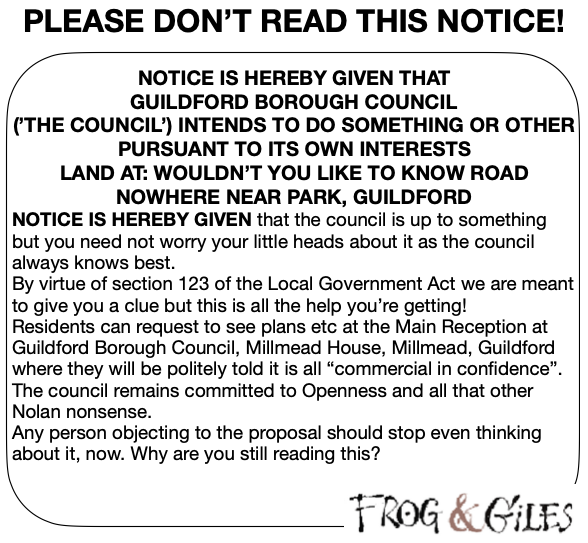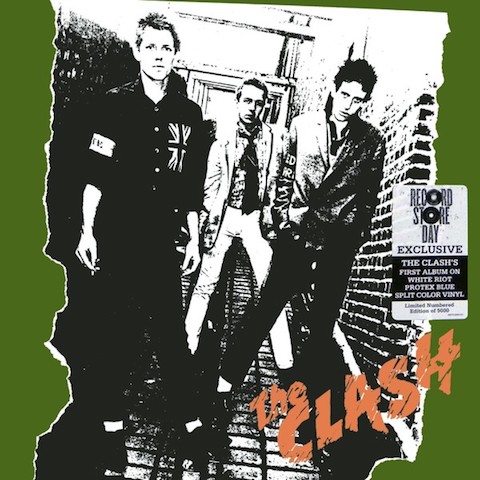 Abraham Lincoln
If given the truth, the people can be depended upon to meet any national crisis...
Abraham Lincoln
If given the truth, the people can be depended upon to meet any national crisis...
 Guildford news...
for Guildford people, brought to you by Guildford reporters - Guildford's own news service
Guildford news...
for Guildford people, brought to you by Guildford reporters - Guildford's own news service
Milestones In Rock ‘n’ Roll History: Punk Band The Clash
Published on: 31 Jul, 2018
Updated on: 1 Aug, 2018
Our latest feature on Milestones in Rock ‘n’ Roll History looks at the impact of punk rock – in particular the influence of Joe Strummer and his band The Clash. Report by Dave Reading
The story of punk rock is a story of rage against powerlessness. It sent out a message to authority in a deafening scream: this is what we are – like it or not. In its most primal form – a twisted, snarling figure encased in a barrage of angry noise – punk rock had the power to repel and frighten anyone who was not part of its world, i.e. most of the population.
The official punk rock period began sometime in the early 1970s, but you can go back a long way to find its spirit alive and kicking.
As rock historian Legs McNeil points out in the documentary Punk:Attitude, Marlon Brando showed that spirit of defiance as early as 1953 in the outlaw biker movie The Wild One. When the Brando character is asked “Hey Johnny, what are you rebelling against?” there’s a brief dramatic pause before he answers, “What have you got?”
Then came rock ‘n’ roll, which sealed the deal. With a backdrop provided by Chuck, Elvis, Jerry Lee and the rest of the gang, kids everywhere joined the revolution against a stifling post-war blandness and pressure to conform. Bigots were thrown into a panic. A campaigning pamphlet urged American families not to listen to “the screaming, idiotic words and savage music” of black singers like Little Richard because they were “undermining the morals of our white youth in America.”
Punk rock arrived two decades later in an age of working-class despondency. Inflation in the UK was raging; prices had risen by nearly 70% in three years; the dole queue stretched all the way round the block. The privileged minority seemed to be untouched by the nation’s problems. There were lavish plans across the UK to celebrate the Queen’s silver jubilee. The time was right for punk. All the elements were coming together spontaneously.
Meanwhile the UK singles chart looked comically out of step with what was coming down the road. The best-selling singles of 1976 included the irritatingly jaunty Save Your Kisses for Me by Brotherhood of Man; the saccharine sound of Mississippi by Pussycat; and the unsurprising formula pop sound of Abba’s Fernando.
The Sex Pistols are credited as the ringleaders who set punk alight in the UK. The landmark event was their first single, Anarchy in the UK. Or was it that shock horror interview on the Today programme when the Pistols helped interviewer Bill Grundy to dig his own grave? Or was it those infamous gigs at the Manchester Free Trade Hall?
But there’s one band that deserves the credit even more than the Sex Pistols. The Pistols may have lit the fuse, but it was the Clash who gave the British punk movement its meaning. The Pistols preached no future but the Clash said let’s change the future.
Their first, seminal album took an unexpected road. The image of punk that had formed in the public’s mind had been derived from a few minutes’ of obnoxious behaviour on the Today programme and the rabid tabloid headlines that followed (“TV fury at rock cult filth”). But when the Clash came along, there was a sense of coherence and a passion both for the music and for the message. It was still brash and noisy, but there was a point to it.
On their debut album – titled simply The Clash – Joe Strummer and Mick Jones tackled all kinds of social issues. Janie Jones was about boredom and corruption in the workplace; London’s Burning described urban alienation; Garageland celebrated garage bands – a head-on response to a comment in the media that the Clash were “one of those garage bands who should be swiftly returned to the garage and the doors locked with the motor left running.”
Not only does the whole album vibrate with creative energy, but you also notice an ear for melody. The untypical Remote Control – released as a single in May 1977 – is reminiscent of the best of late Sixties pop.
Journalist John Robb wrote that the album “totally connected with the lives of its audience, detailing perfectly the punk rockers’ frustration and anger.” He said Joe Strummer’s lyrics “perfectly capture the aspirations and anger of the dole-bound generation floundering around in the shabby UK of the late seventies.”
Strummer’s background was far different to that of the archetypal punk working class rebel. At a young age he was sent to a boarding school, where militaristic attitudes and bullying were endemic. In his book The Clash, Strummer said that if you weren’t a bully yourself you ended up being bullied. “There was no one to protect you,” he said, “and I quickly realised that you either became a power or you were crushed. So I formed a gang…it was self-preservation.”
What Strummer shared with other punk figures was a deeply-rooted resistance to authority, which he despised as “a system of control that didn’t have any inherent wisdom.”
And after punk rock came new wave: its natural successor, but more refined. New wave has been slated as “watered down punk”; the major record labels have been accused of forcing the market by rejecting punk and signing up more polished bands like Blondie, the Knack and the Cars.
Whatever the case, there was some great music that followed punk, brought to us by the likes of Elvis Costello, Joe Jackson and Graham Parker and later by Oasis, Blur and Pulp.
The impact of punk went far beyond rock ‘n’ roll. Kosmo Vinyl, a long-time associate of the Clash, had this to say about Joe Strummer: “Many people, myself included, have lived our lives to a higher standard because of Joe. I raised my kids differently. To those that saw it, to those that saw him, Strummer had a big effect, bigger than Jagger. Seriously. Much bigger than Jagger.”

See Dragon story: GBC’s Explanation of Major Land Sale Notice Error ‘Borders on Arrogant’ Says Councillor



Recent Articles
- Birdwatcher’s Diary No.304
- Cyclist Dies in Peaslake
- Surviving Strategic Director Quits to Take Up CEO Role with a West Sussex Council
- Letter: Damning Reports Should Not Be Used to Gain Political Advantage
- New Leader of the Opposition at Waverley
- Surrey Day’s Celebrations Took to the Skies
- Notice: Dance with Junction 9 to Raise Money for Charities
- Mistreated Former Sub-postmasters Receive Standing Ovation
- Man Arrested for Attempted Rape in West Horsley
- Letter: Cross-party Effort Required to Improve Police Resourcing in Surrey


Search in Site
Media Gallery
Dragon Interview: Local Artist Leaves Her Mark At One of England’s Most Historic Buildings
January 21, 2023 / No Comment / Read MoreDragon Interview: Lib Dem Planning Chair: ‘Current Policy Doesn’t Work for Local People’
January 19, 2023 / No Comment / Read MoreA3 Tunnel in Guildford ‘Necessary’ for New Homes, Says Guildford’s MP
January 10, 2023 / No Comment / Read More‘Madness’ for London Road Scheme to Go Ahead Against ‘Huge Opposition’, Says SCC Leader
January 6, 2023 / No Comment / Read MoreCouncillor’s Son Starts Campaign for More Consultation on North Street Plan
December 30, 2022 / No Comment / Read MoreCounty Council Climbs Down Over London Road Works – Further ‘Engagement’ Period Announced
December 14, 2022 / No Comment / Read MoreDragon Interview: GBC Reaction to the Government’s Expected Decision to Relax Housing Targets
December 7, 2022 / No Comment / Read MoreHow Can Our Town Centre Businesses Recover? Watch the Shop Front Debate
May 18, 2020 / No Comment / Read More







Recent Comments